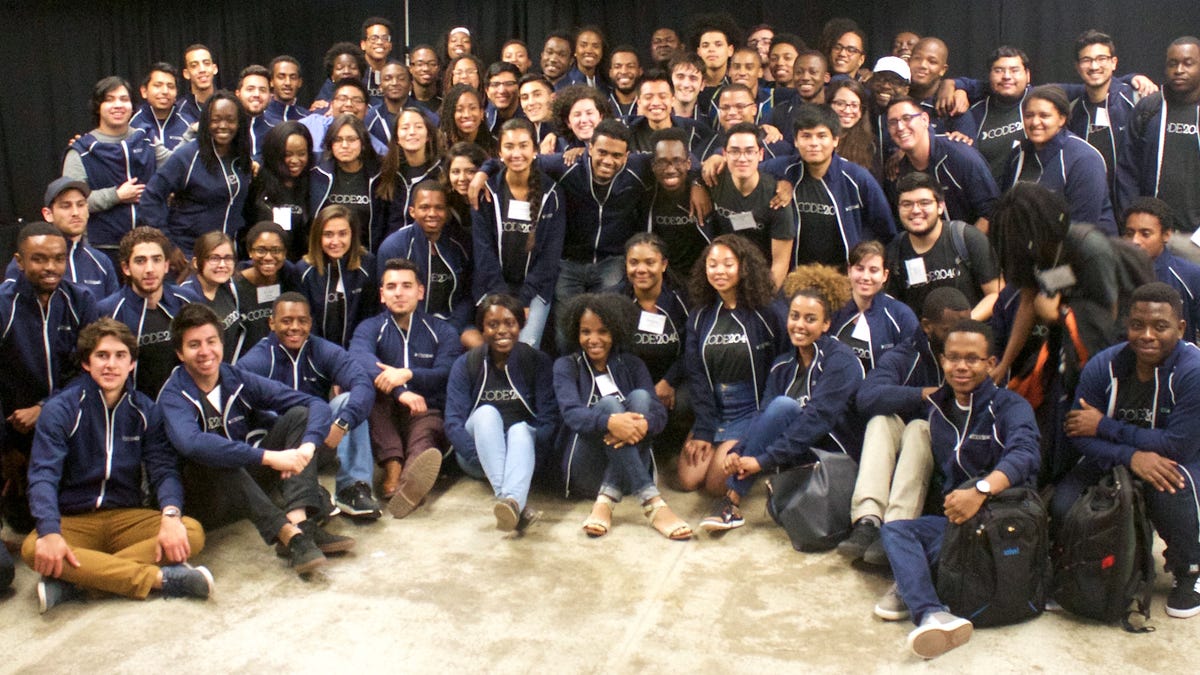How do you solve Silicon Valley's diversity problem? One nonprofit is starting with internships
CODE2040 seeks to bring qualified, diverse talent to some of Silicon Valley's top tech companies.
Silicon Valley is overwhelmingly run by white men, but it doesn't need to be.
The question then is how to improve the industry's diversity. Google is 60 percent white. Microsoft is 59.2 percent. Apple is 54 percent. Meanwhile, blacks and Latinos earn nearly a fifth of all computer science degrees each year, according to the National Science Foundation, but represent just 5 percent of the industry's workforce.
A nonprofit called CODE2040 believes it can help right the scales. The organization aims to help tech companies launch diversity efforts by connecting those companies with a top notch talent pool.
"Sometimes we hear, 'If we could find more people of color that were qualified, we would hire them, but we just can't lower the bar,'" said Chris Simamora, director of the Fellows Program. CODE2040 wants to dispel that idea.
Today, marks the start of its 5th Fellows Program, placing 87 top performing black and Latino college students in summer internships with companies such as Apple, LinkedIn, Intuit, Slack and others. The interns won't be relegated to getting coffee either.
There are a few reasons why diversity advocates say Silicon Valley could benefit from shedding its pattern of homogeneity. Studies indicate that more diverse teams, in terms of gender and race, show greater creativity and experimentation -- and get better results. What's more, there's an economic argument. When the White House launched its TechHire initiative in 2015 to get more Americans plugged into tech jobs, the administration said employers need to tap different communities to fill the more than half million open jobs in information technology.
CODE2040 isn't the only organization hoping to change Silicon Valley. Digital NEST, based in rural Watsonville, California, functions like a coworking space for kids and young adults in the community, and offers not only classes on tech and professional skills, but visits to Silicon Valley. There's also Code for Progress, aimed at women and people of color, which offers fellowships covering training and internships in front-end and back-end software development.
Tech companies, including Facebook, Google and Intel, have also launched programs and various initiatives to address diversity. PayPal, for example, has a paid internship program called Recharge that helps women with tech backgrounds restart their careers after being out of the workforce for a few years.
CODE2040 began in 2012 with 5 students, inspired by founders Tristan Walker and Laura Weidman Powers' first hand experience seeing the lack of diversity in tech. The organization gets its name from the belief that by the mid-2040s, the majority of people in the United States will be minorities. Simamora said CODE2040 is laying the groundwork so these companies can remain competitive amid shifting demographics.
"This is good opportunity from an economic imperative. With the competitiveness of the sector, the US as a whole is going to rely on the ability to attract, hire, and retain diverse talent, and also to create products and services that speak to those communities," Simamora said.
Next year, Simamora said, the organization expects to have as many as 150 interns. It's received funding and support from big names like Intel, which invested $1.3 million in the organization in February. In March, Google funded the expansion of a CODE2040 program that offers a $40,000 stipend to minority entrepreneurs working in seven cities outside Silicon Valley.
Simamora said if CODE2040 succeeds, it may help communities outside Silicon Valley in addition to helping companies diversify their ranks.
"The talent is out there, and we're building bridges to help the sector find that talent," Simamora said.


